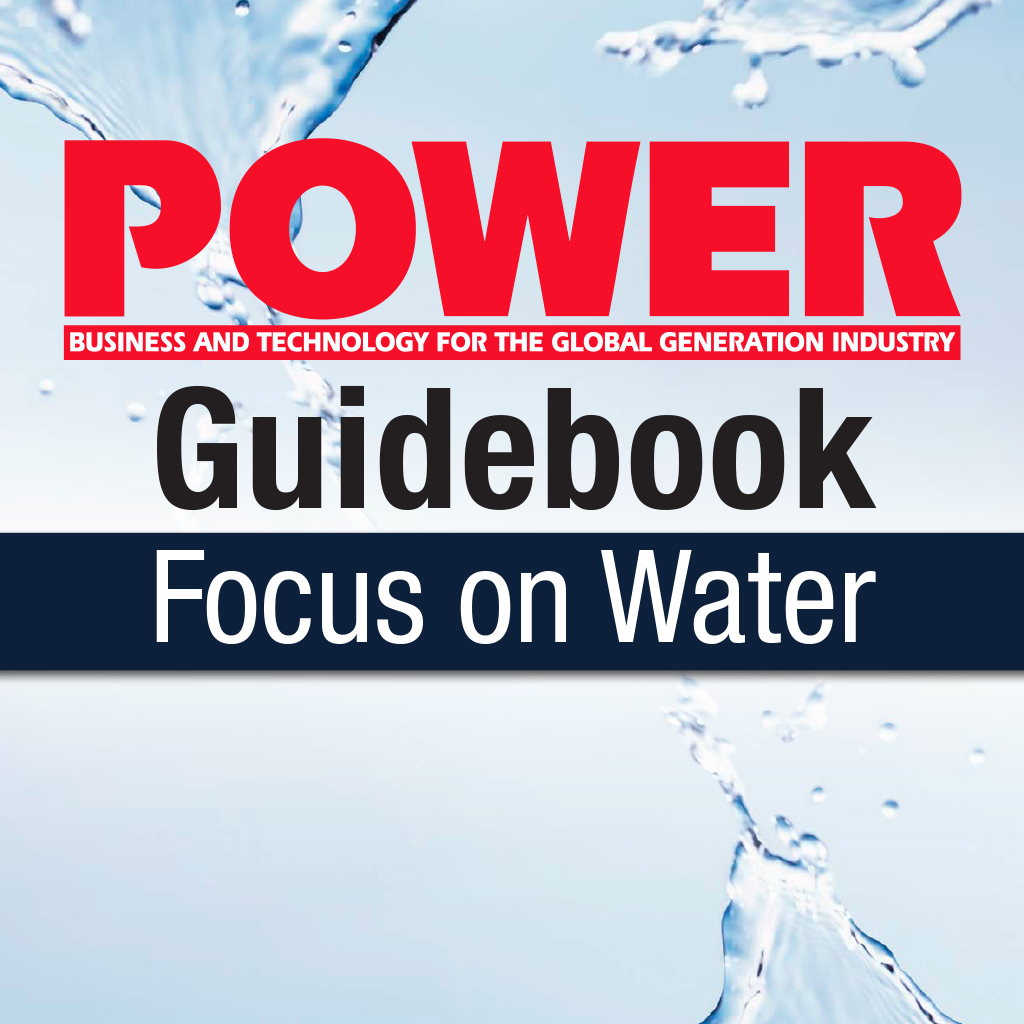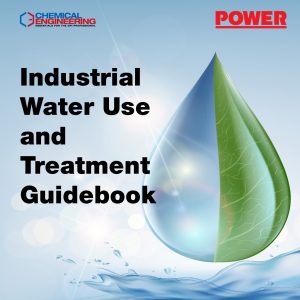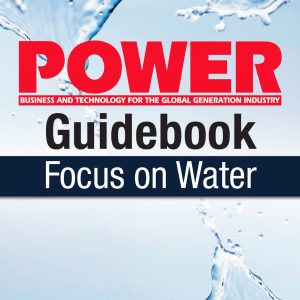Description
This 59 PDF guidebook features articles originally published in POWER magazine. Included are full charts, photographs, graphs and step-by-step instructions for quick and handy reference.
Topics include wetland treatment systems, bioler chemical cleaning, crictal factors for 316(b) facilities rule, water management plans, water treatment technology, water conservation plus much more.
Table of Contents
Jeffrey Energy Center’s Constructed Wetland Treatment System
POWER’s first Water Award goes to a plant that developed an innovative solution to a common problem: the economic and environmentally responsible disposal of flue gas desulfurization wastewater.
Power Sector Link to Water Is Deep, Complex
Site-Specific Factors Are Critical for Compliance with Final 316(b) Existing Facilities Rule
The long-awaited “cooling water” rule for existing power plants is also one of the most complicated when it comes to determining a cost-effective compliance approach. Though the promised flexibility of the final rule is welcome, it also means that generating units subject to the rule have many factors to balance before
making a technology choice.
Boiler Chemical Cleaning: Doing It Correctly
Like some of those tests your doctor is always after you to get, boiler chemical cleaning is something that most of us would rather not think about but that we all agree is necessary. Adding to our general discomfort with the process are new Environmental Protection Agency regulations, which make the disposal of chemical
cleaning wastes more expensive. Here is a review of what to do, when, and some things to watch out for.
Why Your Power Plant Needs a Water Management Plan
Whether you are preparing for the impacts of future U.S. regulations, need to minimize your water-related plant costs, or want to develop more sustainable practices, a water management plan can help you meet your goals. Here’s a blueprint for developing a relatively simple, multi-use plan.
Advanced Cooling and Water Treatment Technology Concepts for Power Plants
Worldwide awareness of the need to minimize freshwater use for power generation— while minimizing energy penalties—is growing. The Electric Power Research Institute is involved in several programs that are developing innovative technologies.
The Water-Energy Nexus Takes Center Stage
Power plant operators have long understood the vital role water plays in power generation. Now, as the rest of the world begins recognizing that as well, a conflict is brewing between the growing demand for electricity and increasingly strained water resources.
Water Issues Challenge Power Generators
Drought and competing uses for water continue to challenge power plant operators worldwide. In response, innovative approaches for reducing water use are being explored from South Africa to China.
Microbial Control in Cooling Water Improves Plant Performance
Microbial inhibition, as part of a robust cooling water treatment program, presents a special challenge because of the variability in makeup water sources, plant processes, and discharge permits. Failure to maintain a proper microbial inhibition program will affect your bottom line as a result of heat rate degradation.
ORP as a Predictor of WFGD Chemistry and Wastewater Treatment
Recent studies have shown that system oxidation-reduction potential (ORP) is not only an important factor for predicting wet flue gas desulfurization (WFGD) absorber chemistry but also may be a predictor of process equipment corrosion and wastewater treatment requirements.
THE BIG PICTURE: Parched
Water scarcity as it relates to energy use is becoming a major concern. Cooling water accounts for more than 50% of na-tional water withdrawals in several developed countries (Eurostat 2010), and it is becoming more important as developing countries become more energy-intensive. At a river basin level, dry periods
have triggered rolling blackouts, and not just because hydropower plants are forced to operate at dangerously low levels. POWER takes a look at more recent drought-related outages around the world.
Water and Power: Will Your Next Power Plant Make Both?
In much of the developing world, two essentials are often in short supply: potable water and reliable electricity. Some countries have invested heavily in desalination and combined cycle technologies to simultaneously solve both problems.
Water Conservation Options for Power Generation Facilities
The electric power industry is a large water user and is dependent upon reliable water supplies. Adopting new water-conserving technologies for power production can help alleviate the impact of future water shortages. Several water use reduction technologies are available, each with different benefits and costs.
Design and Testing of a Water Treatment and ZLD System
Are Economics Trumping Regulation?
The fate of coal-fired generation remains fluid as owners weigh environmental rules, the effect of low natural gas prices, and the shifting cost of investing in emissions control technology. An analysis of generating unit data suggests that smaller, older, less-efficient, and less-frequently dispatched assets are most vulnerable to retirements. Recently accelerated retirement dates for some units indicate that economic factors are a more important determining factor than pending environmental mandates.





